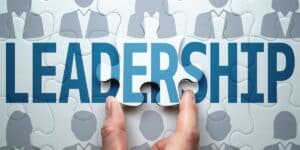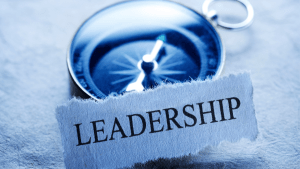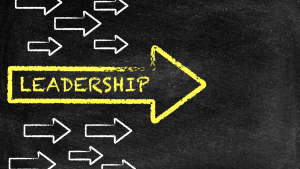The millennial generation, born between 1981 and 1996, represents a dynamic cohort reshaping societal norms and consumer behaviors. With their tech-savvy mindset and passion for sustainability, millennials are driving significant changes across various industries. This blog post delves into the characteristics, aspirations, and influences of this generation, shedding light on how businesses can effectively connect with and cater to the needs of millennials in today’s rapidly evolving market landscape. Join us as we explore the nuances of the millennial mindset and uncover strategies to engage with this crucial demographic segment for long-term success.
Defining the Millennial Generation

Millennials, also known as Generation Y, are individuals born approximately between 1981 and 1996. They are characterized by their adaptability, tech-savviness, and a strong desire for work-life balance.
Birth Years and Characteristics
The millennial generation grew up during a time of rapid technological advancement, witnessing the rise of the internet, social media, and smartphones. This exposure has shaped their values and habits, leading to traits such as being open-minded, collaborative, and socially conscious. Millennials are known for valuing experiences over material possessions and seeking out opportunities for personal growth and development.
Technology and Communication Trends
One of the defining features of millennials is their deep integration with technology. Constant connectivity through smartphones and social media has revolutionized the way they communicate, work, and interact with the world. Millennials prefer instant messaging and social platforms for communication, fostering a culture of quick and efficient exchange of information. This generation values transparency and authenticity in their interactions, often using digital channels to express themselves and connect with others.
Understanding the millennial generation is crucial in today’s digital age, where their influence spans across industries and shapes societal norms. By recognizing their unique characteristics and preferences, businesses and organizations can better cater to their needs and engage with this dynamic demographic.
Millennials in the Workplace

Millennials are reshaping the dynamics of the modern workplace with their unique work ethic and values, bringing fresh perspectives and innovative ideas to the table. Let’s delve into how they approach work and the aspirations and challenges they encounter in their careers.
Work Ethics and Values
Millennials are often characterized by their strong desire for work-life balance, seeking opportunities that align with their personal values and beliefs. This generation values flexibility, diversity, and inclusivity in the workplace. They thrive in environments that foster creativity, collaboration, and continuous learning.
Moreover, millennials are tech-savvy individuals who embrace digital tools and platforms to enhance productivity and communication. This inclination towards technology drives them to seek roles that allow them to leverage innovative solutions and contribute meaningfully to their organizations.
Career Aspirations and Challenges
When it comes to career aspirations, millennials are ambitious and aspire for roles that offer growth opportunities and a sense of purpose. They value professional development and seek jobs that provide avenues for skill enhancement and career progression.
However, millennials face challenges in the form of a competitive job market, student loan debts, and the pressure to succeed in a rapidly changing economy. Balancing their career goals with financial stability can be a significant challenge for many millennials entering the workforce.
In navigating these challenges, millennials often turn to mentorship, networking, and upskilling to stay resilient and adaptable in the face of career uncertainties.
In conclusion, millennials bring a unique blend of values, aspirations, and challenges to the workplace, shaping the future of work with their innovative mindset and commitment to making a difference.
Impact on Industries
The millennial generation has significantly influenced various industries through their unique consumer behaviour and rapid adoption of technology. Let’s delve into how millennials are reshaping the business landscape.
Consumer Behaviour
Millennials are known for their preference for experiences over material possessions, thus driving industries such as travel, hospitality, and entertainment to adapt their offerings to cater to this mindset. Their emphasis on sustainability and social responsibility has also pushed companies to be more environmentally conscious in their practices.
Moreover, millennials value authenticity and transparency from brands, influencing marketing strategies to focus more on storytelling and building genuine connections with consumers. The rise of influencer marketing can be attributed to millennials seeking relatable content from trusted sources.
Technology Adoption
With millennials being digital natives, their seamless integration of technology into daily life has propelled industries like e-commerce, fintech, and digital entertainment to new heights. Their preference for convenience has led to a surge in online shopping, mobile payment solutions, and subscription-based services.
Additionally, the demand for personalization in products and services has driven companies to leverage data analytics and AI to tailor offerings to individual preferences. This hyper-personalized approach resonates well with millennials who seek unique and tailored experiences.
In conclusion, the impact of the millennial generation on industries is undeniable, reshaping traditional business models and driving innovation across various sectors. Embracing their preferences and adapting to their changing needs will be crucial for businesses to thrive in the evolving market landscape.
Social Influence and Activism

In today’s digital age, the millennial generation is actively engaging in social influence and activism, leveraging the power of social media to drive change and create impact. Let’s delve into two key aspects driving this movement – Social Media Engagement and Environmental and Social Causes.
Social Media Engagement
Social media platforms have become vital tools for millennials to amplify their voices and advocate for social justice. Whether it’s through sharing posts, organizing online campaigns, or participating in virtual events, young individuals harness the reach of social media to raise awareness and mobilize support for causes they are passionate about. Platforms like Instagram, Twitter, and TikTok serve as virtual megaphones, enabling millennials to connect, educate, and inspire a global audience.
Environmental and Social Causes
Millennials are at the forefront of championing environmental and social causes, advocating for sustainability, equality, and social justice. From participating in climate strikes to supporting community initiatives, this generation actively drives conversations and actions towards a more sustainable and inclusive society. By engaging in beach clean-ups, fundraising for humanitarian causes, or promoting ethical consumerism, millennials showcase a strong commitment to creating positive change and leaving a lasting impact on the world.
Through their active involvement in social influence and activism, millennials are reshaping the narrative of societal engagement and redefining the ways in which individuals can contribute to a better world. By leveraging the power of social media and championing environmental and social causes, this generation is paving the way for a more connected, aware, and empathetic society.
Challenges Faced by Millennials
Living in today’s fast-paced world, millennials encounter a unique set of challenges that shape their daily lives. Let’s delve into two prevalent hurdles faced by this generation:
Financial Struggles
Financial stability can seem like an elusive dream for many millennials. With rising living costs, student loan debts, and competitive job markets, achieving economic security is a daunting task. Balancing rent, bills, and savings while pursuing personal goals can create a significant strain on millennials’ financial well-being. The pressure to save for the future while handling immediate expenses can lead to stress and anxiety about money management.
Mental Health Issues
The mental health of millennials is another pressing concern in today’s society. Juggling the demands of work, relationships, social media, and societal expectations can take a toll on their mental well-being. Issues such as anxiety, depression, and burnout are prevalent among millennials, often exacerbated by the constant need to succeed and portray a perfect image online. Seeking help and opening up about mental health struggles can be challenging due to stigma and lack of access to affordable mental health services.

The Future of the Millennial Generation
The millennial generation, born between 1981 and 1996, is poised to shape the future in various impactful ways. Let’s delve into two significant aspects that define the future trajectory of this dynamic cohort.
Economic Impact
Millennials are positioned to revolutionize the economic landscape. As this generation increasingly enters the workforce, their consumer behavior and preferences are reshaping industries. Their tech-savvy nature and preference for experiences over material possessions are driving innovation in sectors such as technology, e-commerce, and sustainability.
Moreover, millennials are more inclined towards conscious consumerism, favoring brands that align with their values. This shift is pushing businesses to be more socially responsible and environmentally conscious. Companies that adapt to meet these demands are likely to thrive, showcasing the substantial economic influence of the millennial demographic.
Generational Shifts
The millennial generation is at the forefront of several societal changes. With a focus on diversity, inclusivity, and social justice, millennials are advocating for a more equitable and inclusive world. Their prioritization of work-life balance, mental health awareness, and flexible working arrangements are reshaping traditional workplace norms.
Additionally, millennials are driving technological advancements and digital transformations across industries. Their proficiency in digital communication and appetite for innovation are accelerating the adoption of automation, artificial intelligence, and remote work practices. This generational shift is paving the way for a more interconnected and tech-driven future.
As the millennial generation continues to exert its influence across various domains, their progressive mindset and penchant for change are poised to shape a future that reflects their values and aspirations. Embracing diversity, sustainability, and innovation, millennials are set to leave a lasting impact on society and the economy.
Conclusion
In conclusion, the millennial generation is reshaping societal norms and challenging traditional structures with their innovative thinking and digital prowess. As they continue to prioritize purpose over profit and advocate for sustainability and social justice, businesses and industries must adapt to meet their values and preferences. Embracing the tech-savvy, socially conscious mindset of millennials is crucial for staying relevant and thriving in today’s rapidly evolving landscape. By understanding and tapping into the unique strengths of this generation, we can build a more inclusive, sustainable future for all.
Relates Links:












